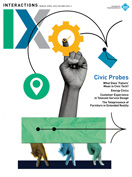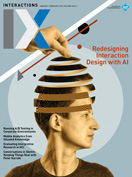Authors: Rojin Vishkaie
Posted: Thu, July 06, 2023 - 12:04:00
Does our future have researchers who are robots? Are computers going to become so smart that they can boss these researchers around? And, if robots and computers can accomplish everything, then what are human researchers going to do? To explore these questions, I have been reading AI Superpowers: China, Silicon Valley, and the New World Order [1], a 2018 nonfiction book by Kai-Fu Lee, an artificial intelligence pioneer and venture capitalist.
The book draws on Lee's technological knowledge and professional expertise to offer a perspective on the interplay between the U.S. and China in the age of artificial intelligence, and its impact on the world. Lee believes that the U.S. is taking advantage of being the first mover in the AI race, but that China is ahead of the race in its data supply. From his perspective, the elite AI experience in the U.S. is less important than China’s AI implementation superpower.
But Lee’s argument goes beyond the AI race between the U.S. and China; it’s also about the impact of AI on humans. In his view, the U.S. and China have leapfrogged, and sit atop of, the rest of the world. The U.S. and China’s disproportionate power has worsened global inequality, and the fear of possible massive job losses because of AI will likely reduce the ability of the job market to cope and adapt. People losing their jobs will negatively impact their purpose and personal identity, as well as their ability to survive, which cannot be addressed by socioeconomic concepts like universal basic income.
But despite the many warnings, Lee has a positive outlook that AI and humans can productively coexist. Lee’s optimistic belief suggests that humans are the catalyst for shaping that future of AI. He suggests that the building blocks of a successful AI superpower is abundant data, AI scientists, AI-friendly policies, and tenacious entrepreneurs.
Lee believes that China has access to a massive quantity of data due to its large base of users, while the U.S. has an edge in elite AI expertise. He further argues that the Chinese government has a more sophisticated structure to mobilize resources and implement strategic directions for long-term goals (e.g., Development Plan for a New Generation of Artificial Intelligence). He postulates that the prevailing Silicon Valley mentality is mission-driven and techno-optimistic, believing that innovative thinking can change the world. In contrast, China has focused on market and financial profit. In Lee’s view, the AI new world order is bipolar and focused on AI superpowers versus the rest of the world, but the actions of humans themselves are the most important factor in shaping the future of the human ability to coexist with AI.
What I’ve outlined is not a theoretical argument about the future, but rather is a perspective on researchers’ coexistence with AI while considering Lee's views on the potential impact of AI on human work. I believe that researchers can create an ecosystem where AI enhances productivity (e.g., using chatGPT [2] to assist with data management and insights). The ecosystem of research and AI can also be used for socially beneficial activities (e.g., generating knowledge with practical applications).
Endnotes
1. Lee, K.F. AI Superpowers: China, Silicon Valley, and the New World Order. Houghton Mifflin, Boston, MA, 2018. ISBN: 9781328546395
2. Lock, S. What is AI chatbot phenomenon ChatGPT and could it replace humans? The Guardian. Dec. 5, 2022; https://www.theguardian.com/te...
Posted in: on Thu, July 06, 2023 - 12:04:00
Rojin Vishkaie
View All Rojin Vishkaie's Posts





Post Comment
No Comments Found